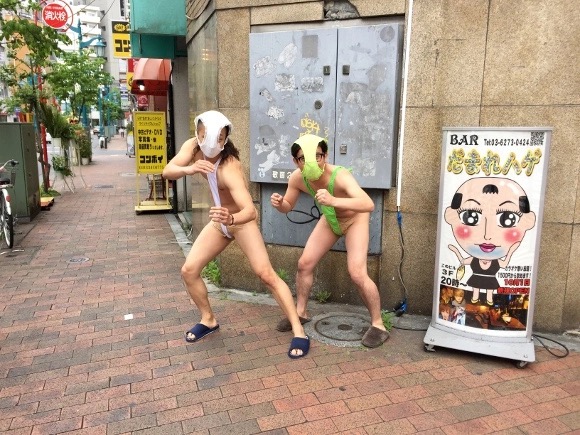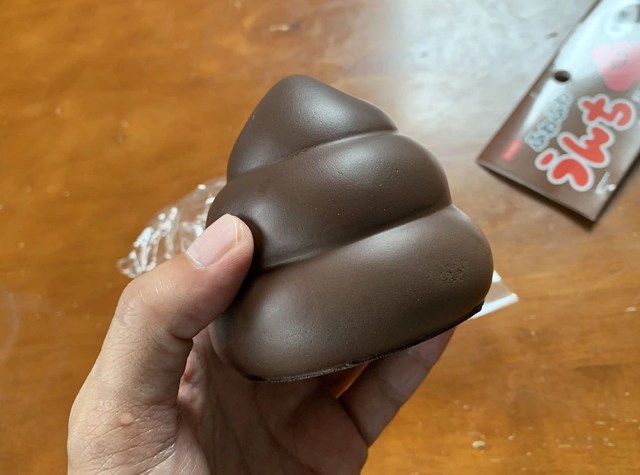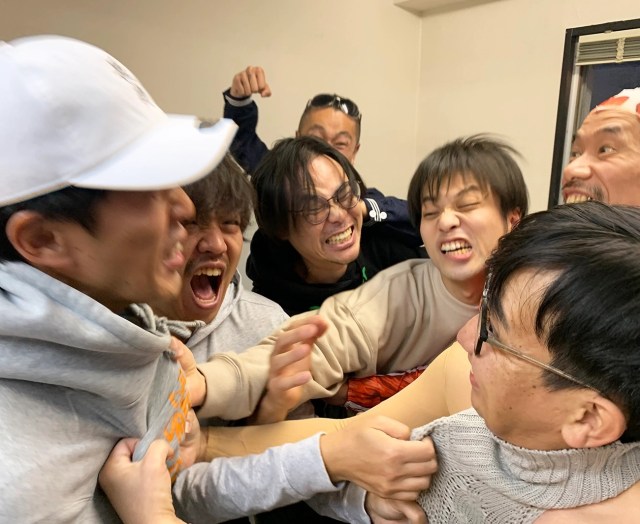
Five things our reporter noticed after moving from Tokyo’s safest area to its least safe one.
In March of this year, our Japanese-language reporter Mariko Ohanabatake moved from the area in Tokyo where she’d lived for 20 years. For one reason or another, she’d lived in the same area since she was a student, and it was easy to stay there because it was Meguro, which is said to be the safest of Tokyo’s 23 wards. It was a nice place to live, but this year, after taking stock of her finances and deciding to cut down on her cost of rent and length of commute, she decided to make the move to a different area, which just so happened to have a reputation of being “not very safe” according to numerous surveys.
Initially, Mariko wasn’t too concerned about safety as she likes her new ‘hood, but now, just a little over a month after she moved in, she’s been able to notice a few things out of the ordinary that might’ve contributed to her new area’s less-than-desirable reputation.
Surveys into safe areas of Tokyo often cite public order as one of the main yardsticks by which safety levels can be assessed. This includes incidents of burglaries, bag snatching, assaults, indecent exposure and general “yankees” (the Japanese word for young delinquents) hanging about the area.
▼ Mariko’s own colleagues have sullied the reputation around our Shinjuku office on multiple occasions.
Thankfully, Mariko hasn’t encountered any panty-faced thugs in her own ‘hood yet, but she has come across a few new “huh” moments she’s never experienced in Japan before.
It has to be said that, compared to a number of other cities around the world, Tokyo has a reputation for being generally safe by comparison, so Mariko’s “huh” moments are simply that. They’re nothing that will send anyone running for the hills, but they’re certainly unusual by Japan standards, and may be useful for anyone thinking about moving to a place in Tokyo that has a reputation for being unsafe.
So let’s take a look at the moments that made her go “huh”, starting with…
1. Dog Poop
This was the first thing that Mariko noticed about the area after moving in. Unlike her old neighbourhood, where she’d seen dogs out on walks with their owners but never saw any dog poop on the streets, now she sees droppings pretty much every day on the walk from her home to the station.
▼ And they’re not cute poops like this one.
There aren’t many stray dogs around, so Mariko figures it must be the fault of pet owners failing to clean up after their dogs. In fact, there are loads of posters in the area reminding people to “Please pick up your dog’s droppings”, making the failure to do so even more disconcerting. If locals have no qualms ignoring signs from the municipality and don’t care about other residents, what else will they get up to?
2. Noisy Families
Sometimes Mariko likes to head out to a family restaurant to grab a bite to eat while doing some work on her laptop, but in her new neighbourhood, every family restaurant she’s been to has been buzzing with noise. Mariko is no killjoy, and doesn’t mind extra background noise — in fact, she sometimes prefers it to the quietness at home — but from noon onwards at her new local family restaurant, you’ll find groups of people drinking and guffawing, and children running around the store screaming.
On one occasion, a group of about four married couples were drinking and talking loudly together at the family restaurant from noon. One of the younger couples left in the middle of the meal, leaving money on the table to cover their share, but after they’d left, the others piped up, abusing them loudly with statements like, “They have no manners!” and “How dare they leave before their senpai? (seniors)“. Their angry tone and drunk demeanour made Mariko feel unsafe, and it was still only lunchtime.
A lot of diners in Mariko’s new ‘hood don’t seem to show any consideration for anyone around them, talking loudly, dropping serviettes and food on the floor and leaving their tables in a mess. Sure, it might not sound like a big deal in the grand scheme of things, but in Japan, where good etiquette and consideration for others is a key part of society, this type of behaviour stands out as shocking at worst and unusual at best.
3. Mysterious troubles at the family restaurant
There was another incident that Mariko encountered at the family restaurant that deserved its own special mention. One day, when she was waiting to pay, she found herself in line behind an irate older man, who was waiting at the register and saying things like, “Stop screwing around! How long are you gonna make me wait? You sonofabitch!”
He caused a commotion for around ten minutes, and the reason why he was so furious was because the family next to him had eaten the food he’d ordered.
The food at this store had been served by a robot waiter, so staff would’ve assumed the food had been delivered correctly. However, as it turns out, the robot had taken the food to the wrong table. Usually, when you receive food that isn’t yours, you might pipe up and let the staff know to correct the situation, but at this family restaurant, the family simply ate the food as if it were theirs.
It’s easy to know when you’re getting something you didn’t order, but this family didn’t have a care in the world, continuing to eat everything on the table while the old man yelled about them.
In the end, despite the chaos, staff were able to placate the old man, and he eventually left with a smile on his face, likely because he’d gotten a free meal or credit due to the inconvenience. However, the incident left Mariko feeling shaky and she was disappointed to see people in her neighbourhood acting like this.
4. Neighbours calling the police followed by a car horn late at night
One day, there seemed to be some kind of trouble in the area, so Mariko’s neighbours called the police and asked for advice. She wasn’t able to catch the details, but she overheard the disturbing exchange in which the police replied, “Well, we can’t set up a stakeout all day here like we’re in a detective drama…”
That was enough to set Mariko on edge, but things became even more tense when, soon after the police visit, a strange car cruised through the neighbourhood, honking its horn many times in the middle of the night. She wasn’t sure whether the two incidents were related, but one thing was certain — this was something Mariko had never experienced before in Tokyo.
5. Street Arguments
On another occasion, Mariko was walking along the road in front of the station when a young man suddenly stomped in front of her, pointed his finger at her, and shouted, “F**k!”
Apparently, a serious-looking lady nearby had cautioned the man about where he was standing or something, and they’d gotten into an argument. Then, as Mariko happened to pass by, she got caught up in the crosshairs.
After he swore at Mariko, the young man immediately went back to fighting with the other woman. Though Mariko was physically unscarred after the incident, she was mentally scarred, and hasn’t been able to shake off the bad feeling it left her with to this day.
So there you have it — the top five things that Mariko has noticed since she moved from Tokyo’s supposedly safest ward — Meguro — to its supposedly worst one…Adachi (as reported in the survey linked after this article).
Surprisingly, though, despite all the strife she’s encountered, Mariko says she doesn’t want to move from the area. She’s lived in Tokyo long enough to know that it takes a while to get used to new experiences, so she’s happy to grow an extra layer of armour to adapt to her new circumstances.
Sure, she might not be hanging out in her neighbourhood late at night anymore, but there are perks like cheap supermarkets and an unpretentious atmosphere for her to enjoy, so it’s not all bad. Plus, she’s a reporter after all, so in a way she finds all these new people and their lives intriguing. Who knows — maybe one day in future she’ll be able to get to know them better and feature some of them in her stories. Watch this space!
Related: Mynavi
Featured image: Pakutaso
Insert images ©SoraNews24
● Want to hear about SoraNews24’s latest articles as soon as they’re published? Follow us on Facebook and Twitter!
[ Read in Japanese ]





 What’s it like traversing Tokyo using only wheelchair accessible routes?
What’s it like traversing Tokyo using only wheelchair accessible routes? Shop in Tokyo’s Chinatown has TWENTY kinds of delicious homemade steamed buns
Shop in Tokyo’s Chinatown has TWENTY kinds of delicious homemade steamed buns Hello Kitty doesn’t have a mouth, so how does she video chat with fans? We find out!
Hello Kitty doesn’t have a mouth, so how does she video chat with fans? We find out! Do Tokyo’s Reversible Destiny Lofts really hold the power to reverse your destiny?
Do Tokyo’s Reversible Destiny Lofts really hold the power to reverse your destiny? We get a rare whiff of the corpse flower, a.k.a. the world’s stinkiest flower, in Tokyo botanical garden
We get a rare whiff of the corpse flower, a.k.a. the world’s stinkiest flower, in Tokyo botanical garden Non-tourist trap fish market in northeastern Japan captures our hearts with amazing sashimi
Non-tourist trap fish market in northeastern Japan captures our hearts with amazing sashimi Kyoto becomes City of Yokai, with Night Parade of One Hundred Demons festival this autumn
Kyoto becomes City of Yokai, with Night Parade of One Hundred Demons festival this autumn Japan’s newest life-size Gundam is finished, receives Shinto blessing in Osaka【Video】
Japan’s newest life-size Gundam is finished, receives Shinto blessing in Osaka【Video】 Chinese drivers flocking to Japan for quick and easy route to international licenses
Chinese drivers flocking to Japan for quick and easy route to international licenses One of Japan’s most awesome rail passes, the Seishun 18 Ticket, just got a lot less awesome
One of Japan’s most awesome rail passes, the Seishun 18 Ticket, just got a lot less awesome No train, no hotel – How to do an overnight bus trip to Kanazawa from Tokyo – Part 1【Photos】
No train, no hotel – How to do an overnight bus trip to Kanazawa from Tokyo – Part 1【Photos】 McDonald’s Japan debuts new anime girl mascot character with incredibly long name
McDonald’s Japan debuts new anime girl mascot character with incredibly long name Korean basketball coach humiliates player live on TV, tapes his mouth shut
Korean basketball coach humiliates player live on TV, tapes his mouth shut We try a delicious hidden gem in Fukuoka, unknown to even Japanese people
We try a delicious hidden gem in Fukuoka, unknown to even Japanese people Studio Ghibli releases new “Butterflies in the Forest” Totoro towels
Studio Ghibli releases new “Butterflies in the Forest” Totoro towels What’s the deal with akebi, the perfectly purple, alien-like fruit that’s in season now in Japan?
What’s the deal with akebi, the perfectly purple, alien-like fruit that’s in season now in Japan? Totoro, Calcifer, other Ghibli stars returning as humidifiers ahead of Japan’s dry winter days【Pics】
Totoro, Calcifer, other Ghibli stars returning as humidifiers ahead of Japan’s dry winter days【Pics】 Is downtown Tokyo’s crazy cheap 290-yen bento boxed lunch shop still around, and is it still cheap?
Is downtown Tokyo’s crazy cheap 290-yen bento boxed lunch shop still around, and is it still cheap? Meet the kind Japanese grandpa who takes photos for tourists at the Hachiko statue in Shibuya
Meet the kind Japanese grandpa who takes photos for tourists at the Hachiko statue in Shibuya Studio Ghibli releases new mug tumblers featuring anime movie characters
Studio Ghibli releases new mug tumblers featuring anime movie characters How to power up the coolest cheap souvenir from Nintendo’s official shop with a trip to Daiso
How to power up the coolest cheap souvenir from Nintendo’s official shop with a trip to Daiso Why was the Lithuanian ambassador to Japan working in a fast food beef bowl joint in Tokyo?
Why was the Lithuanian ambassador to Japan working in a fast food beef bowl joint in Tokyo? Line of foreign tourists leads us to Akihabara’s meatiest fatty ramen【Taste test】
Line of foreign tourists leads us to Akihabara’s meatiest fatty ramen【Taste test】 Japanese convenience store Family Mart announces abolishment of eat-in spaces
Japanese convenience store Family Mart announces abolishment of eat-in spaces Studio Ghibli releases new insect whistle necklace from Nausicaä of the Valley of the Wind
Studio Ghibli releases new insect whistle necklace from Nausicaä of the Valley of the Wind Totoro sequel anime Mei and the Baby Catbus will screen at Ghibli Park this winter
Totoro sequel anime Mei and the Baby Catbus will screen at Ghibli Park this winter Starbucks Japan unveils Halloween Frappuccino for 2024, and it’s like drinking a magic spell
Starbucks Japan unveils Halloween Frappuccino for 2024, and it’s like drinking a magic spell Evangelion creator Hideaki Anno returning to anime with new project for 50-year-old franchise
Evangelion creator Hideaki Anno returning to anime with new project for 50-year-old franchise Studio Ghibli releases new Howl’s Moving Castle goods that capture the magic from the anime movie
Studio Ghibli releases new Howl’s Moving Castle goods that capture the magic from the anime movie Adult Jam Bread causes a stir at store in Tokyo
Adult Jam Bread causes a stir at store in Tokyo Right now is the peak time to go to Tokyo’s most-beautiful-view beer garden【Photos】
Right now is the peak time to go to Tokyo’s most-beautiful-view beer garden【Photos】 Pizza Hut adds a “Guilty Secret” sandwich to its menu for a limited time
Pizza Hut adds a “Guilty Secret” sandwich to its menu for a limited time McDonald’s new Happy Meals offer up cute and practical Sanrio lifestyle goods
McDonald’s new Happy Meals offer up cute and practical Sanrio lifestyle goods Foreign tourists on Shinkansen bullet train break suitcase etiquette, angering local passengers
Foreign tourists on Shinkansen bullet train break suitcase etiquette, angering local passengers [Deleted] Article written for April Fool’s Day 2018
[Deleted] Article written for April Fool’s Day 2018 Japanese government to make first change to romanization spelling rules since the 1950s
Japanese government to make first change to romanization spelling rules since the 1950s Foreigner’s request for help in Tokyo makes us sad for the state of society
Foreigner’s request for help in Tokyo makes us sad for the state of society Ghibli founders Toshio Suzuki and Hayao Miyazaki contribute to Japanese whisky Totoro label design
Ghibli founders Toshio Suzuki and Hayao Miyazaki contribute to Japanese whisky Totoro label design Tokyo’s most famous Starbucks is closed
Tokyo’s most famous Starbucks is closed Princesses, fruits, and blacksmiths: Study reveals the 30 most unusual family names in Japan
Princesses, fruits, and blacksmiths: Study reveals the 30 most unusual family names in Japan Doraemon found buried at sea as scene from 1993 anime becomes real life【Photos】
Doraemon found buried at sea as scene from 1993 anime becomes real life【Photos】 Japanese convenience store or Japanese supermarket: Which one is cheaper?
Japanese convenience store or Japanese supermarket: Which one is cheaper? BonAppetour startup lets you cook and dine with Tokyo locals in their homes
BonAppetour startup lets you cook and dine with Tokyo locals in their homes Cruising around Gunkanjima, Japan’s otherworldly “Battleship Island”【Photos】
Cruising around Gunkanjima, Japan’s otherworldly “Battleship Island”【Photos】 End-of-the-line exploring in Japan: Visiting Hashimoto Station
End-of-the-line exploring in Japan: Visiting Hashimoto Station House hunting? Here are some tips that might prevent headaches and frustrations
House hunting? Here are some tips that might prevent headaches and frustrations Our Starbucks “Nothingness” Frappuccino proves you can’t customise out flavour in Japan
Our Starbucks “Nothingness” Frappuccino proves you can’t customise out flavour in Japan Solo sakura: Four reasons to have a one-person cherry blossom-viewing party
Solo sakura: Four reasons to have a one-person cherry blossom-viewing party 3 convenience store ice creams you should buy at 7-Eleven in Kyushu
3 convenience store ice creams you should buy at 7-Eleven in Kyushu We book a night in a bookshelf at Book and Bed in Shinjuku
We book a night in a bookshelf at Book and Bed in Shinjuku A visit to T-CAT, Tokyo’s often forgotten City Air Terminal【Photos】
A visit to T-CAT, Tokyo’s often forgotten City Air Terminal【Photos】 On-warabimochi: A delicious Japanese dessert you should only eat with people who already love you
On-warabimochi: A delicious Japanese dessert you should only eat with people who already love you Reports of the death of Tokyo’s Daikanyama neighborhood have been greatly exaggerated
Reports of the death of Tokyo’s Daikanyama neighborhood have been greatly exaggerated Using Tokyo’s Tadaima Plus campaign is cheaper than calling a late-night taxi
Using Tokyo’s Tadaima Plus campaign is cheaper than calling a late-night taxi Testing out the parasol that boasts lowering temperatures by 13.7 degrees
Testing out the parasol that boasts lowering temperatures by 13.7 degrees Is Denny’s Japan’s new ultra-expensive Amaou strawberry parfait worth it?【Taste test】
Is Denny’s Japan’s new ultra-expensive Amaou strawberry parfait worth it?【Taste test】
Leave a Reply